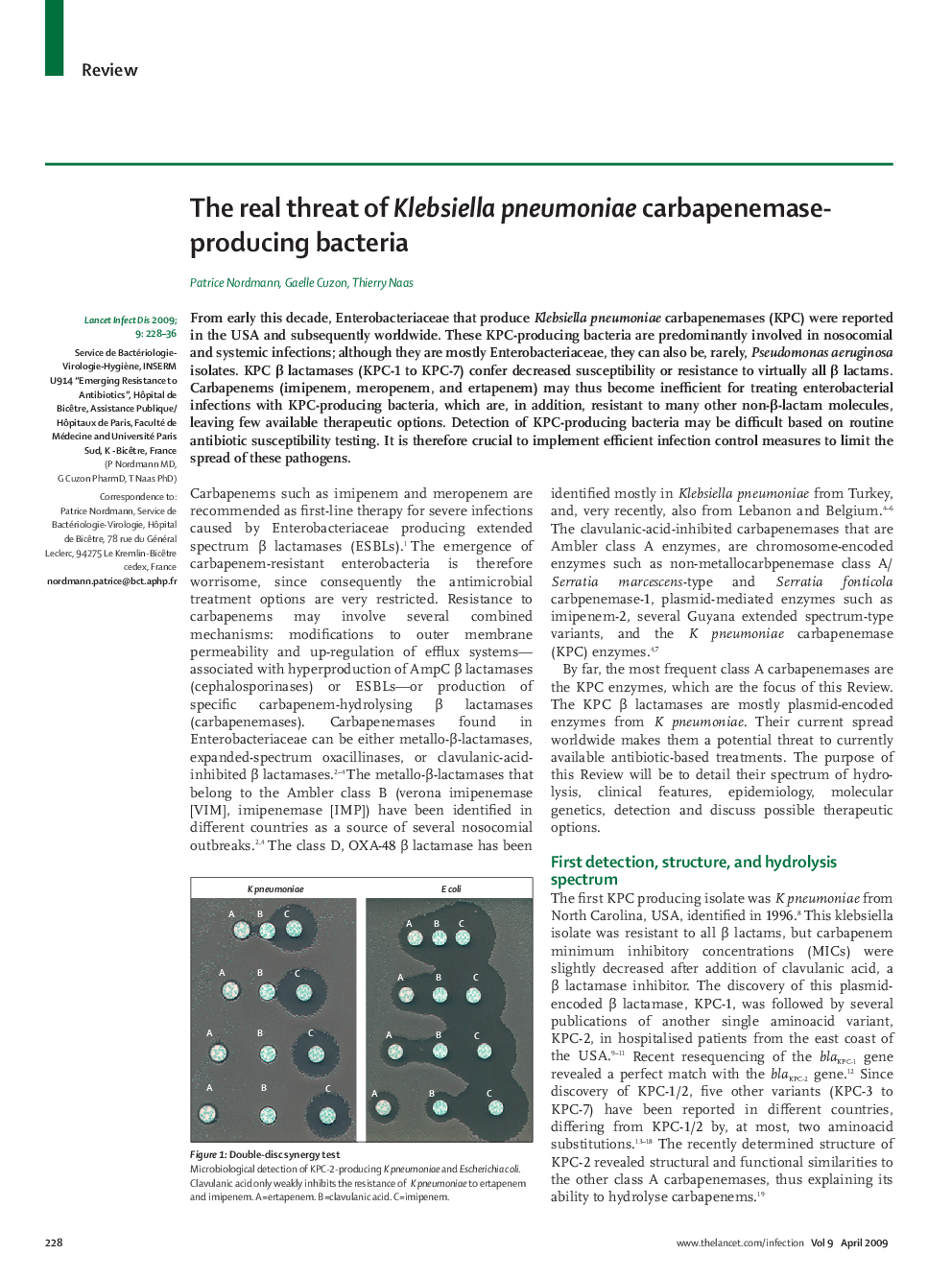| Article ID | Journal | Published Year | Pages | File Type |
|---|---|---|---|---|
| 3411819 | The Lancet Infectious Diseases | 2009 | 9 Pages |
SummaryFrom early this decade, Enterobacteriaceae that produce Klebsiella pneumoniae carbapenemases (KPC) were reported in the USA and subsequently worldwide. These KPC-producing bacteria are predominantly involved in nosocomial and systemic infections; although they are mostly Enterobacteriaceae, they can also be, rarely, Pseudomonas aeruginosa isolates. KPC β lactamases (KPC-1 to KPC-7) confer decreased susceptibility or resistance to virtually all β lactams. Carbapenems (imipenem, meropenem, and ertapenem) may thus become inefficient for treating enterobacterial infections with KPC-producing bacteria, which are, in addition, resistant to many other non-β-lactam molecules, leaving few available therapeutic options. Detection of KPC-producing bacteria may be difficult based on routine antibiotic susceptibility testing. It is therefore crucial to implement efficient infection control measures to limit the spread of these pathogens.
